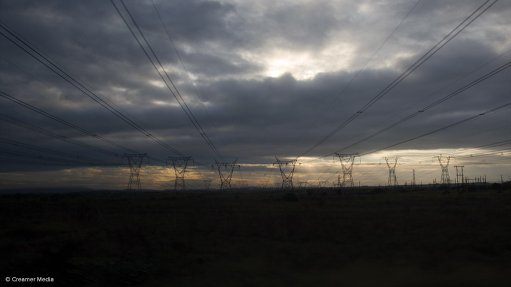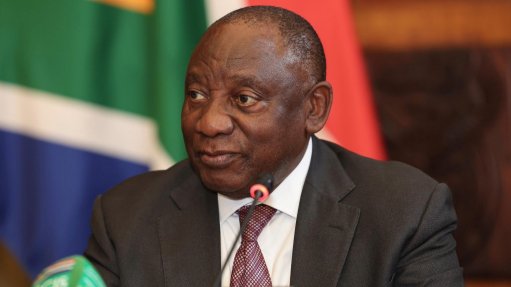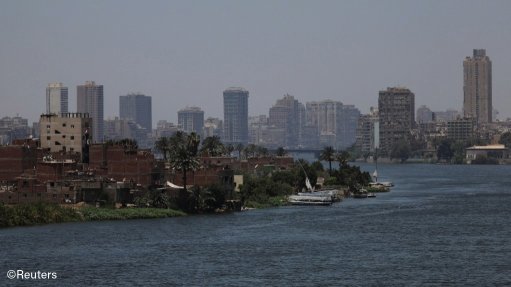Brics expansion holds threats and opportunities for SA business

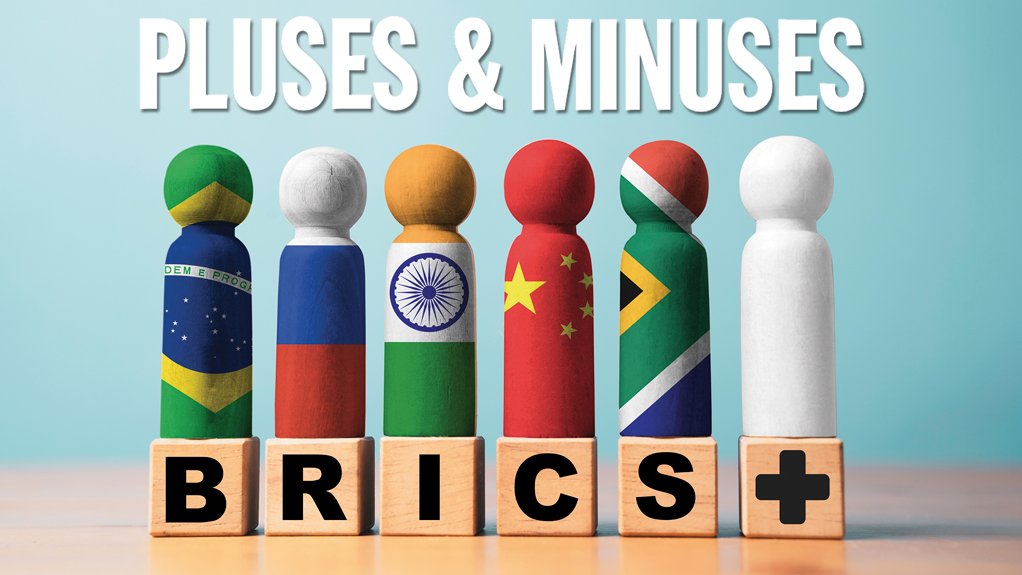
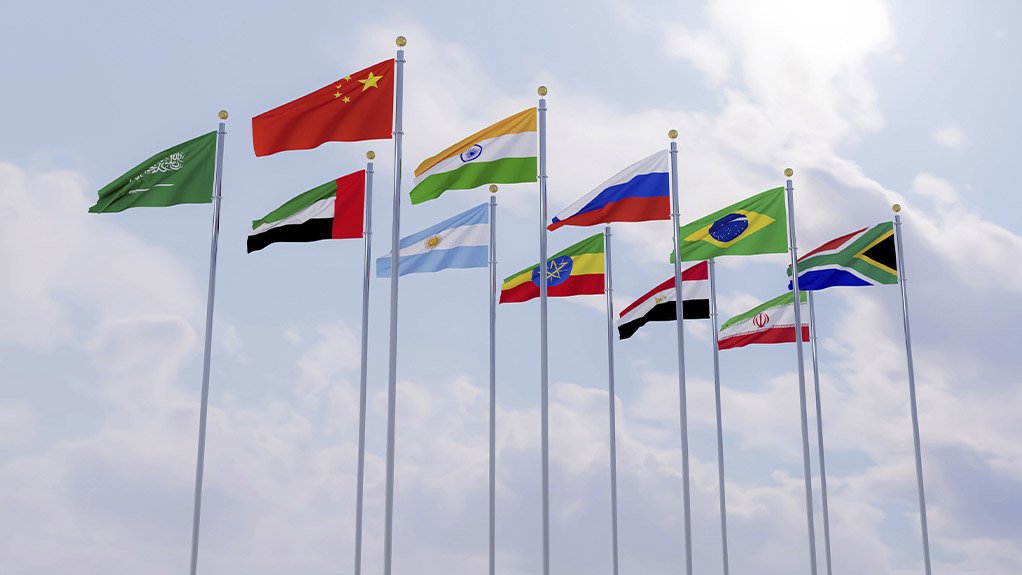
WINDS OF CHANGE The new members, which have been invited to join from 2024, are Argentina, Egypt, Ethiopia, Iran, the United Arab Emirates and Saudi Arabia. The general consensus is that the Brics expansion is meant to enhance the group’s global influence and aid a transition to a multipolar world
The expansion of the Brazil, Russia, India, China and South Africa (Brics) bloc, announced during the fifteenth yearly Brics Summit in August, has raised questions about South Africa’s role in the group and whether the perceived spurning of its more traditional allies and trade partners will have adverse effects going forward.
The new members, which have been invited to join from 2024, are Argentina, Egypt, Ethiopia, Iran, the United Arab Emirates and Saudi Arabia. The general consensus is that the Brics expansion is meant to enhance the group’s global influence and aid a transition to a “multipolar world”, in part by reducing the dominance of the US dollar.
South African Institute of International Affairs (SAIIA) African Governance and Diplomacy Programme head Steven Gruzd notes that bolstering numbers is a tried-and-true method of expanding clout, noting that both the European Union and the North Atlantic Treaty Organisation sought to increase membership to elevate their reach and scale of influence.
“The more countries behind you, the louder your voice becomes. So, expansion, in this instance, translates to more political clout. But make no mistake; the Group of Seven States are likely to remain dominant for now, although China is exerting its diplomatic heft to a much greater degree.”
Further, the expansion of the Brics market reinforces the group’s economic power, “even if it remains a loose club rather than a firm, exclusive alliance”. Gruzd adds that the inclusion of several major oil producers and some of the members’ geographical importance on major sea lanes, including the Suez Canal, the Straits of Hormuz and the Bab-el-Mandeb Straits, will “add to the club’s overall power”.
Gruzd tells Engineering News & Mining Weekly that, while the new entrants want to be part of something “successful, with momentum” and which seems to have an ideological affinity with strengthening a multipolar world, “some tensions will be imported into Brics”.
These include issues pertaining to the Grand Ethiopian Renaissance Dam and the resulting “standoff’ on the Nile between Ethiopia and Egypt, as well as the Middle Eastern rivalry between Iran and Saudi Arabia. There is also the continued tension relating to Russia’s invasion of Ukraine, the escalation of the long simmering Israel-Hamas conflict, as well as friction between India and China on numerous issues.
Gruzd says that the Brics organisation clearly believes that issues between members can be contained or “ever ameliorated”; however, the members’ individual relationships with the rest of the global community are trickier to manage, especially when many of the new members, and a significant chunk of the old ones, have been critical of the existing West-orientated world order.
“For example, as international geopolitics becomes an ever-more-complex web, closer relations with Iran through Brics could place strain on South Africa’s fragile relations with the US vis-à-vis Ukraine, and now the Israel-Hamas war too. There is much speculation that African Growth and Opportunity Act membership could be in jeopardy, although the South African government has tried to dispel this, including by sending special envoys to Washington.
“International Relations and Cooperation Minister Naledi Pandor visiting Tehran will not be seen as constructive in the West, nor will her telephone calls to Hamas leadership.”
He notes that, while the inclusion of Iran may “make things more complicated”, South Africa maintaining relationships with ‘controversial’ countries is nothing new, as it has had strong ties with Iran for decades, including defending it in international fora regarding its nuclear programme and on sanctions.
Gruzd says that the long-term security and trade implications of the Brics expansion are challenging to identify at this stage.
“From a trade perspective, it’s hard to tell whether there will be adverse impacts on future trade for South Africa. We needn’t see this as a stark ‘either or’ choice between new Brics members and other trading partners. It can be ‘both and’. It’s nonbinary. The expansion may even improve South African trade with the new Brics States and should not be detrimental to existing trade.”
The North-West University Business School’s Professor Raymond Parsons agrees that the inclusion of the new members, while inevitably necessitating a different collaborative “mix” within the group, can create opportunities for South Africa.
“The Brics Summit can be regarded as a valuable enabler and facilitator of new trade and investment opportunities generally, both for existing Brics members and the newcomers.
“Importantly, the first day of the summit was allocated entirely to the business sector, and the ‘network effects’ and positive spillovers should not be underestimated, particularly as they enabled various business networks to explore areas of common economic interest and/or immediate transactional value,” Parsons comments.
However, Free Market Foundation contributing author and political analyst Nicholas Woode-Smith, in his piece titled ‘BRICS: Unmasking SA’s supposed ‘nonalignment’ and neutrality’, is far more pessimistic about South Africa’s prospects.
He notes that this year, South Africa recorded a trade deficit of $14.9-billion in its trade with Brics partners. Conversely, South Africa’s balance of trade with the US was $991-million in South Africa’s favour, in addition to “other profitable trade partners in Europe”.
“We profit from trade with the West. Yet, we are closing ranks and forming a trade [bloc] with nations which don’t want our goods and just want to sell their imported goods to us.”
Woode-Smith is not alone in his scepticism; the Merchantec CEO Confidence Index indicates that 55% of CEOs that were surveyed harbour doubts about the potential benefits of South Africa’s association with Brics.
As reported by the Engineering News website last month, the questionnaire sought to gauge perceptions on whether Brics could offer South Africa opportunities for trade, investment and technology exchange that could contribute to the nation’s economic growth, with the results showing that just over half of the South African CEOs surveyed do not view Brics as a remedy for the country’s economic woes.
Similar to Woode-Smith, one of the prominent concerns voiced by the CEOs is that Brics members are not substantial trading partners for South Africa, compared with other key partners such as the UK and the US. The other is that closer ties with Brics might alienate existing trade partners.
Nevertheless, if South Africa is able to retain its existing trade relationships, while increasing trade with the new and existing Brics partners, it will be extremely well positioned for growth.
Brics – according to the International Institute for Middle East and Balkan Studies’ (IFIMES’) ‘2023 World:Brics – De-dollarization Summit’ analysis, published in September – accounts for 23% of the global gross domestic product (GDP), 42% of the global population and more than 16% of global trade.
The IFIMES notes that, by 2040, the Brics group is expected to account for more than 50% of the global GDP, owing to the integration of several sizable economies through the Brics Plus framework.
African Continental Free Trade Area
“South Africa will need to rigorously interrogate what it needs to do to enlarge its share of Brics’ trade and investment flows. Also, with Brics’ geopolitical dynamics about to change, South Africa will be required to strategise afresh to ensure that its national interests are indeed protected, as events continue to unfold in the global economy,” comments Parsons.
To that end, he stresses the importance of South Africa helping to expedite the implementation of the African Continental Free Trade Area (AfCFTA) Agreement, given the current geopolitical environment.
From a Brics perspective, the new African States are ranked second (Egypt) and seventh (Ethiopia) in terms of African countries with the highest GDP size, while South Africa is ranked third. All three were among the first to ratify the AfCFTA Agreement, which is indicative of their willingness to expand intra-African trade.
“The World Bank has said that implementing the AfCFTA Agreement could improve incomes in Africa by nearly 10% by 2035, if trade barriers could be reduced. The success of AfCFTA, therefore, is an important pillar on which to expand intra-African trade and investment,” says Parsons.
Banking services provider Standard Chartered in its report titled ‘Future of Trade 2023: Africa Spotlight on the African Continental Free Trade Area’, published last month, notes that exports from Africa, currently amounting to $645.3-billion, are set to reach $952-billion by 2035, through rapidly growing connections with South Asia, East Asia and the Middle East.
“Intra-Africa trade is also expected to flourish – flows within East and West Africa will grow by 15.1% and 13.2% respectively, far outpacing the global average of 4.2%,” the report notes, adding that the AfCFTA Agreement, if implemented effectively, could “radically reshape future growth and development”.
The Dollar Question
In 2014, Brics countries established the New Development Bank to help fund infrastructure and sustainable development projects.Brics also established a contingency reserve arrangement for its members.
The IFIMES’ September analysis describes both initiatives as a demonstration of intent to establish institutions that “constitute an alternative to the existing global financial institutions that are dominated by the West”.
It further suggests that “the establishment of a single currency or use of local currencies in trade exchange among Brics countries is an effective way to oppose the monopoly of the US dollar and address its consequences and limitations”.
The general consensus among political analysts is that Brics is hoping to dent the strength of the dollar, and while most agree that the introduction of a single currency is highly unlikely, very few dismiss the possibility outright.
“I don’t think a single currency can be introduced at this stage – there’s too much geographical, political and economic diversity in the group. While the Brics countries are definitely keen to de-dollarise and trade in local currencies, I cannot see any currency dethroning the dollar any time soon, and the experiment with local currencies still has some way to run,” says Gruzd.
Parsons adds that the prospect of a Brics common currency must be placed on the back-burner, and that South Africa should instead ensure that Brics members aim to expand trade in local currencies in a manner that can benefit the rand.
Woode-Smith, meanwhile, believes that both the single currency idea and the experiment with local currencies is “foolish”.
“Using local currencies will become a costly and inconvenient affair. Single currencies being used between many economic agents just makes trade simpler. The use of the US dollar for global trade helps . . . in the same way that a single currency helps facilitate trade within a country.”
Further, he suggests that even exploring the possibility of a single Brics currency is “was[ting] time and money, changing things that don’t need to be changed”.
However, as to whether Brics eventually succeeds in reducing the dominance of the dollar, it is generally accepted that such success is far off. As the IFIMES notes, “while the Brics bloc can have significant influence, it will not be sufficient to [cause] a revolution in the existing international relations. It is rather unlikely that Brics will shake the globalisation trend or the US control in the current balance of power. Nevertheless, one must admit that the Brics bloc is a first serious attempt in that direction”.
Article Enquiry
Email Article
Save Article
Feedback
To advertise email advertising@creamermedia.co.za or click here
Comments
Announcements
What's On
Subscribe to improve your user experience...
Option 1 (equivalent of R125 a month):
Receive a weekly copy of Creamer Media's Engineering News & Mining Weekly magazine
(print copy for those in South Africa and e-magazine for those outside of South Africa)
Receive daily email newsletters
Access to full search results
Access archive of magazine back copies
Access to Projects in Progress
Access to ONE Research Report of your choice in PDF format
Option 2 (equivalent of R375 a month):
All benefits from Option 1
PLUS
Access to Creamer Media's Research Channel Africa for ALL Research Reports, in PDF format, on various industrial and mining sectors
including Electricity; Water; Energy Transition; Hydrogen; Roads, Rail and Ports; Coal; Gold; Platinum; Battery Metals; etc.
Already a subscriber?
Forgotten your password?
Receive weekly copy of Creamer Media's Engineering News & Mining Weekly magazine (print copy for those in South Africa and e-magazine for those outside of South Africa)
➕
Recieve daily email newsletters
➕
Access to full search results
➕
Access archive of magazine back copies
➕
Access to Projects in Progress
➕
Access to ONE Research Report of your choice in PDF format
RESEARCH CHANNEL AFRICA
R4500 (equivalent of R375 a month)
SUBSCRIBEAll benefits from Option 1
➕
Access to Creamer Media's Research Channel Africa for ALL Research Reports on various industrial and mining sectors, in PDF format, including on:
Electricity
➕
Water
➕
Energy Transition
➕
Hydrogen
➕
Roads, Rail and Ports
➕
Coal
➕
Gold
➕
Platinum
➕
Battery Metals
➕
etc.
Receive all benefits from Option 1 or Option 2 delivered to numerous people at your company
➕
Multiple User names and Passwords for simultaneous log-ins
➕
Intranet integration access to all in your organisation










